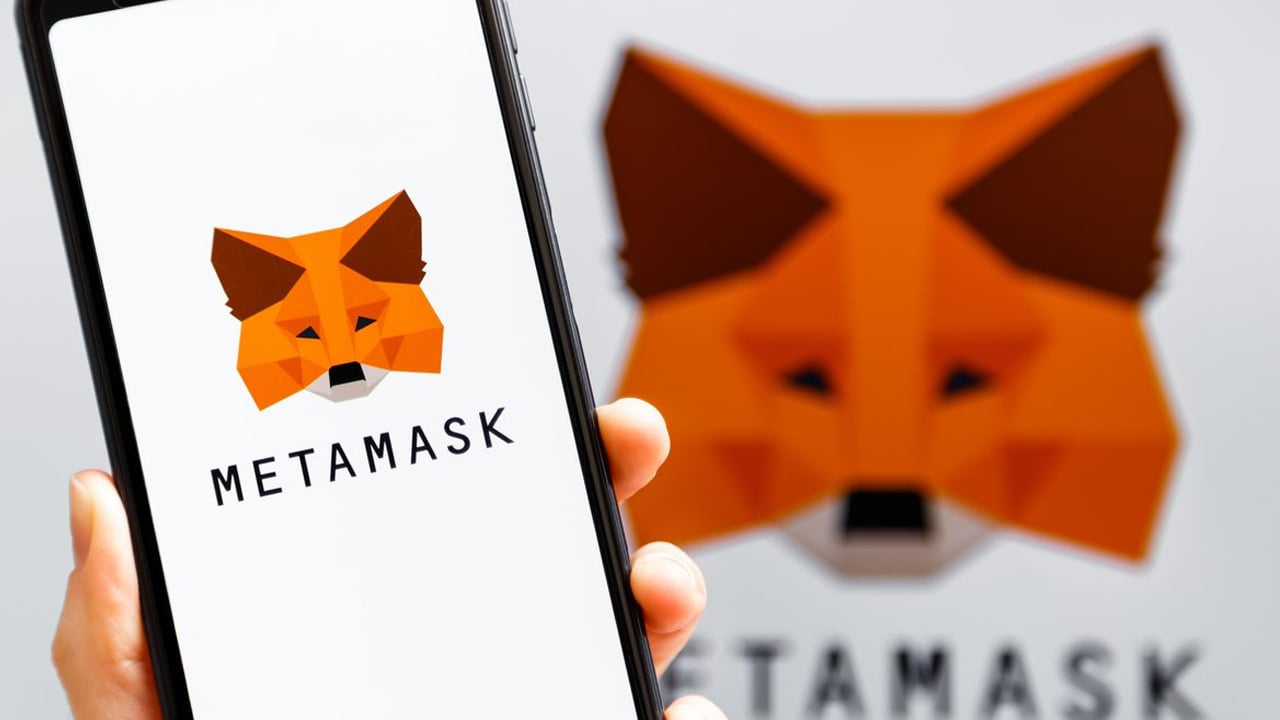How to Save Assets After a Metamask Wallet Crash – KeychainX Expert Explains – Sponsored Bitcoin News
5 min read
sponsored
What if a Metamask wallet has crashed or become corrupted, and a user is afraid of losing all of their digital assets? To ensure that a lost crypto wallet is recovered successfully, users should read the advice of wallet recovery experts from KeychainX, the trusted service provider that specializes in this type of recovery.
Recover Metamask Even If a User Loses the 12 Words
Many DeFi users have turned to Metamask as their preferred to-go wallet. Unfortunately, the rise of Metamask’s popularity has also resulted in mega buggy code. As panicked users attempt to upgrade their wallets or run out of disk space, they are greeted with screens stating that the wallet has been corrupted (?) as a result of disk space limitations or, even more worryingly, that their wallet address seems empty or disappear after upgrading to popular browsers such as Chrome or Firefox.
Users of Metamask should take a close look at these simple steps on what to do and what not to do when the inevitable occurs, namely if the wallet is corrupted and funds have disappeared or not.
Well if users follow instructions above, and their seed is not backed up correctly, users are practically DELETING their wallet data by following the Metamask instructions.
In the Metamask plug-in, there are several bugs and errors.
- When the drive space is full, Metamask ceases to function.
- The wallet disappears when the Metamask plug is upgraded in specific old versions.
- Metamask words do not work due to user negligence.
- A forced upgrade occurs when the phone syncs with the computer browser.
Several methods exist for ‘saving’ the wallet, but users should at all costs avoid the following:
- Do not remove the plug-in.
- Do not reinstall the plug-in.
- Do not format the drive.
- Do not upgrade the app.
- Asking for assistance in public forums may result in the theft of funds by a faux Metamask support team.
- REDDIT, DISCORD, TWITTER, or TELEGRAM are not places where users should give away words. Please use the community forums only. In addition to some tips, click on this link to get to the forums. https://community.metamask.io/t/vault-decrypt-some-tips/7085
Several articles have been written on what to do when a user’s Metamask crashes and if a user has saved their 12 words, but what if they did not? What assistance is available?
The KeychainX team would like to share some key advice to keep in mind:
- It is possible to view vault data from within the browser. Metamask Zendesk provides the most comprehensive guide to this topic. Please find the link: metamask.zendesk.com.
2. If this method does not work, there is a slim chance that the files may still be stored in the users’ cache. Users should check the cache data of the browser.
Users with WINDOWS boxes should refer to this example format folder:
C:UsersUSER_NAMEAppDataLocalGoogleChromeUser DataDefaultLocal Extension Settingsnkbihfbeogaeaoehlefnkodbefgpgknn
Users with MAC boxes should refer to this folder structure example:
Library>Application Support>Google>Chrome>Default>Local Extension Settings>nkbihfbeogaeaoehlefnkodbefgpgknn
Users should be aware of this filename structure.
There are various files inside, and users should open them in a text editor or hex editor and look for the string “vault” or “data” followed by a similar string [“vault”:” [/” data/” :/” wwpX…
Next, change all ” to “without the and enter the full string into the vault decryptor: metamask.github.io.
3. If a user’s decryptor does not recognize the password, it is likely that the user has recalled it incorrectly. The team can assist if users have some understanding of what it is and need assistance. Please send an email to keychainx@protonmail.com, and the team will investigate.
There is a last chance to retrieve data if there is no vault data or if the user has removed the plug-in. For deleted files, users would need to look at the sector level.
There are different tags to look for depending on the browser.
The vault data is encrypted by Firefox using Snappy tools so that it may appear scrambled, but the user should be able to locate it if they are lucky by searching for the string “sNaPpY” or in HEX mode FF060000734F.
For other browsers look for a string beginning with {“vault”:”{”data”:”
As a last resort, contact the team to see if they can assist.
Don’t give up; the vault is somewhere to be found. GOOD LUCK!
Crypto Wallets Recovery Experts
If users are not yet familiar with KeychainX, it is a cryptocurrency wallet recovery service operating since 2017. The company recovered wallet keys for many clients from all over the world and people can see some of their raving reviews on Trustpilot where KeychainX has an almost perfect 4.9 ‘Excellent’ score. Read this article about how it unlocks different types of wallets, here about its work with blockchain wallets, here about cracking hardware wallets and here about specifically recovering keys from Multibit Classic or Multibit HD.
KeychainX has relocated in 2021 from its birthplace in the U.S., to Zug, Switzerland – a part of the world known in the blockchain community as Crypto Valley due to its concentration of relevant companies. Robert Rhodin, the CEO of the company, is naturally one of the leading experts in the field of crypto wallet recovery.
To learn more about the company visit KeychainX.io or just send an email to KeychainX@protonmail.com if someone needs to talk about password recovery.
This is a sponsored post. Learn how to reach our audience here. Read disclaimer below.
Image Credits: Shutterstock, Pixabay, Wiki Commons
Disclaimer: This article is for informational purposes only. It is not a direct offer or solicitation of an offer to buy or sell, or a recommendation or endorsement of any products, services, or companies. Bitcoin.com does not provide investment, tax, legal, or accounting advice. Neither the company nor the author is responsible, directly or indirectly, for any damage or loss caused or alleged to be caused by or in connection with the use of or reliance on any content, goods or services mentioned in this article.
Read disclaimer







